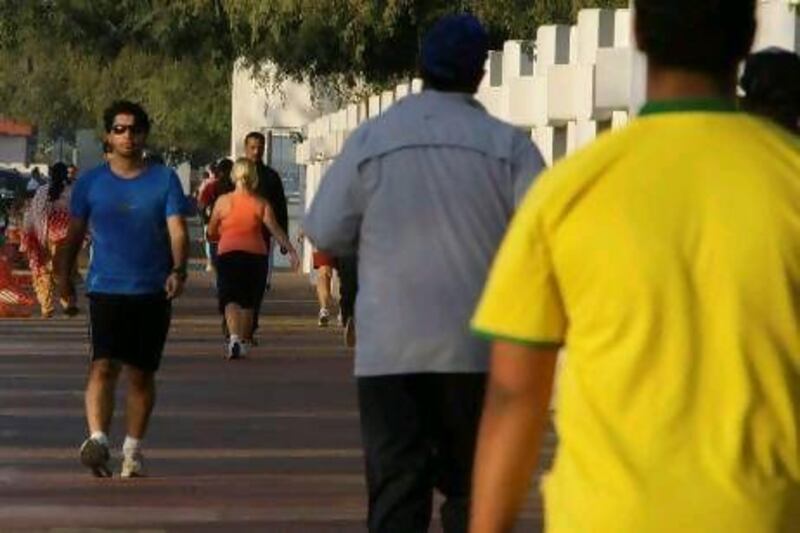Workers in the UAE who spend too much time toiling and not enough exercising are at risk of falling victim to a new chronic ailment. The repercussions of this new medical phenomenon – dubbed deconditioning – are something Dr Pamela Leader, a specialist at Chiropractic Dubai, comes face to face with every day.
In a cross section of our patients I would say at least 80 per cent are office-based workers sitting all day for periods of eight to 12 hours, says Leader. Probably only 30 per cent of those office workers take any initiative to counteract their inactive jobs with exercise in the evening and at the weekend.
Now a prolonged lack of exercise has been said to lead to the body undergoing a series of deconditioning changes, identified by Dr Michael Joyner, from the Mayo Clinic in Minnesota, US, in a paper published in The Journal of Physiology. Joyner says these changes can cause the heart rate to rise excessively during any type of even moderate activity – and that deconditioning may lead to bones and muscles wasting and an overall decline in physical stamina.
The side-effects are such that when deconditioned people actually do try to exercise or make attempts at restarting gym memberships or training programmes, they tend to tire quickly and experience dizziness or other discomfort, which makes many give up. People get very excited at the novelty of getting back into exercising after being inactive and before you notice, problems begin to arise, says Leader.
According to the experts, when you start or restart a new activity, your body needs time to build and improve many physiological reactions, such as building new capillaries and increasing the muscles’ capacity to get rid of toxins and repair damaged tissue.
While a sedentary lifestyle is already linked with obesity and related ailments such as diabetes, high blood pressure and joint damage, experts such as Joyner believe lack of exercise needs to be diagnosed and treated as a medical condition in its own right.
I would argue that physical inactivity is the root cause of many of the common problems that we have, he says. If we were to medicalise it, we could then develop a way to give people lifelong treatments that focus on behavioural modifications and physical activity.
Medical experts such as Joyner and Leader insist that more public health measures should be taken to limit physical inactivity and promote physical activity.
Since being in the UAE, I don’t think I’ve ever seen one advert on the television encouraging people to exercise, says Leader, who believes it’s vital to focus on prevention throughout the region and to push for exercise to stop citizens of the UAE falling victim to deconditioning in the first place.
Lack of motivation and lack of safe, pedestrianised areas to walk or exercise are factors, but from the survey we did, most of my patients agree that the climate is a major reason why they don’t exercise. I notice there are some cultures which are more active than others, so perhaps more education and awareness should be communicated to everyone in the UAE about the benefits exercise can have on your physical and mental health.
Recognising
the signs
“Within five minutes of seeing a patient, most medical professionals can tell whether someone is unfit or not,” says Dr Leader. “Repeated periods of pain are usually an indicator of poor fitness.”
According to Michael Lancaster, a personal trainer at Platform 3 Fitness, Park Island, Dubai Marina, other signs of “deconditioning” include:
- Shortness of breath: can you walk quickly up two flights of stairs without being out of breath?
- Poor fitness: can you run 100 metres without being overly out of breath?
- Struggling with moderate tasks: can you easily walk briskly for 30 minutes without stopping?
- Poor physical condition: are you flexible? Can you easily touch your toes several times and stretch your body easily without pain, stiffness or pulling a muscle?
- Weight issues: is your waist bigger than your hips?






